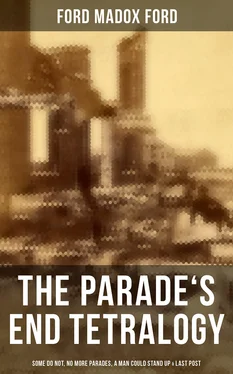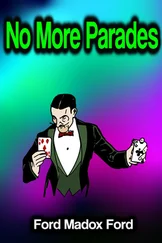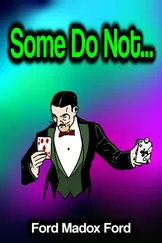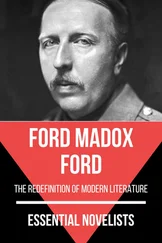‘Oh, you’d better,’ Tietjens said wretchedly, ‘have a lawsuit with him. It’ll account for . . . for your not going to Mountby . . . ’
‘You think of everything,’ she said.
They wheeled the cart backwards off the motionless horse. Tietjens moved it two yards forward—to get it out of sight of its own blood. Then they sat down side by side on the slope of the bank.
‘Tell me about Groby,’ the girl said at last.
Tietjens began to tell her about his home . . . There was, in front of it, an avenue that turned into the road at right angles. Just like the one at Mountby.
‘My great-great-grandfather made it,’ Tietjens said. ‘He liked privacy and didn’t want the house visible to vulgar people on the road . . . just like the fellow who planned Mountby, no doubt . . . But it’s beastly dangerous with motors. We shall have to alter it . . . just at the bottom of a dip. We can’t have horses hurt . . . You’ll see . . . ’ It came suddenly into his head that he wasn’t perhaps the father of the child who was actually the heir to that beloved place over which generation after generation had brooded. Ever since Dutch William! A damn Nonconformist swine!
On the bank his knees were almost level with his chin. He felt himself slipping down.
‘If I ever take you there . . . ’ he began.
‘Oh, but you never will,’ she said.
The child wasn’t his. The heir to Groby! All his brothers were childless . . . There was a deep well in the stable yard. He had meant to teach the child how, if you dropped a pebble in, you waited to count sixty-three. And there came up a whispering roar . . . But not his child! Perhaps he hadn’t even the power to beget children. His married brothers hadn’t . . . Clumsy sobs shook him. It was the dreadful injury to the horse which had finished him. He felt as if the responsibility were his. The poor beast had trusted him and he had smashed it up. Miss Wannop had her arm over his shoulder.
‘My dear!’ she said, ‘you won’t ever take me to Groby . . . It’s perhaps . . . oh . . . short acquaintance; but I feel you’re the splendidest . . .
He thought: ‘It is rather short acquaintance.’
He felt a great deal of pain, over which there presided the tall, eel-skin, blonde figure of his wife . . .
The girl said:
‘There’s a fly coming!’ and removed her arm.
A fly drew up before them with a blear-eyed driver. He said General Campion had kicked him out of bed, from beside his old woman. He wanted a pound to take them to Mrs Wannop’s, waked out of his beauty sleep and all. The knacker’s cart was following.
‘You’ll take Miss Wannop home at once,’ Tietjens said, ‘she’s got her mother’s breakfast to see to . . . I shan’t leave the horse till the knacker’s van comes.’
The fly-driver touched his age-green hat with his whip.
‘Aye,’ he said thickly, putting a sovereign into his waistcoat pocket. ‘Always the gentleman . . . a merciful man is merciful also to his beast . . . But I wouldn’t leave my little wooden ‘ut, nor miss my breakfast, for no beast . . . Some do and some . . . do not.’
He drove off with the girl in the interior of his antique conveyance.
Tietjens remained on the slope of the bank, in the strong sunlight, beside the drooping horse. It had done nearly forty miles and lost, at last, a lot of blood.
Tietjens said:
‘I suppose I could get the governor to pay fifty quid for it. They want the money . . . ’
He said:
‘But it wouldn’t be playing the game!’
A long time afterwards he said:
‘Damn all principles!’ And then:
‘But one has to keep on going . . . Principles are like a skeleton map of a country—you know whether you’re going east or north.’
The knacker’s cart lumbered round the corner.
Table of Contents
Sylvia Tietjens rose from her end of the lunch-table and swayed along it, carrying her plate. She still wore her hair in bandeaux and her skirts as long as she possibly could: she didn’t, she said, with her height, intend to be taken for a girl guide. She hadn’t, in complexion, in figure or in the languor of her gestures, aged by a minute. You couldn’t discover in the skin of her face any deadness: in her eyes the shade more of fatigue than she intended to express, but she had purposely increased her air of scornful insolence. That was because she felt that her hold over men increased to the measure of her coldness. Someone, she knew, had once said of a dangerous woman, that when she entered the room every woman kept her husband on the leash. It was Sylvia’s pleasure to think that, before she went out of that room, all the women in it realized with mortification—that they needn’t! For if coolly and distinctly she had said on entering: ‘Nothing doing!’ as barmaids will to the enterprising, she couldn’t more plainly have conveyed to the other women that she had no use for their treasured rubbish.
Once, on the edge of a cliff in Yorkshire where the moors come above the sea, during one of the tiresome shoots that are there the fashion, a man had bidden her observe the demeanour of the herring gulls below. They were dashing from rock to rock on the cliff face, screaming, with none of the dignity of gulls. Some of them even let fall the herrings that they had caught and she saw the pieces of silver dropping into the blue motion. The man told her to look up; high, circling and continuing for a long time to circle; illuminated by the sunlight below, like a pale flame against the sky was a bird. The man told her that that was some sort of fish-eagle or hawk. Its normal habit was to chase the gulls which, in their terror, would drop their booty of herrings, whereupon the eagle would catch the fish before it struck the water. At the moment the eagle was not on duty, but the gulls were just as terrified as if it had been.
Sylvia stayed for a long time watching the convolutions of the eagle. It pleased her to see that, though nothing threatened the gulls, they yet screamed and dropped their herrings . . . The whole affair reminded her of herself in her relationship to the ordinary women of the barnyard . . . Not that there was the breath of a scandal against herself; that she very well knew, and it was her preoccupation just as turning down nice men—the ‘really nice men’ of commerce—was her hobby.
She practised every kind of ‘turning down’ on these creatures: the really nice ones, with the Kitchener moustaches, the seal’s brown eyes, the honest, thrilling voices, the clipped words, the straight backs and the admirable records—as long as you didn’t enquire too closely. Once, in the early days of the Great Struggle, a young man—she had smiled at him in mistake for someone more trustable—had followed in a taxi, hard on her motor, and flushed with wine, glory and the firm conviction that all women in that lurid carnival had become common property, had burst into her door from the public stairs . . . She had overtopped him by the forehead and before a few minutes were up she seemed to him to have become ten foot high with a gift of words that scorched his backbone and the voice of a frozen marble statue: a chaudfroid effect. He had come in like a stallion, red-eyed, and all his legs off the ground: he went down the stairs like a half-drowned rat, with dim eyes and really looking wet, for some reason or other.
Читать дальше












